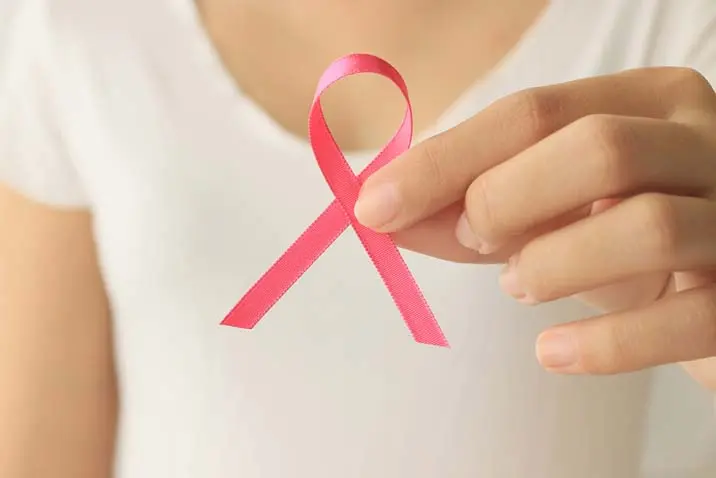-
-
Featured Care Areas

Early diagnosis may save your life
Early detection matters when it comes to fighting cancer. Out of the top 10 cancers that affect women in Singapore, 4 are cancers unique to women, such as breast and gynaecological cancers.
Breast cancer is by far the most common type of cancer in Singapore amongst both men and women. 1 in 6 women who suffer from breast cancer are under the age of 45.
With cancer cases on the rise, it's time to stop adding to the statistics and start taking action. Your best protection against cancer is prevention and early detection.
What are the common types of cancer for women?
Gynaecological oncology is a specialised field of medicine that focuses on the diagnosis and treatment for women with cancers of the female reproductive system.
Gynaecological cancers make up 4 of the top 10 cancers among women in Singapore.
Here are top 10 cancers and their incidence:
| Type of cancer | Incidence |
|---|---|
| 1. Breast | 11,232 |
| 2. Colorectal & rectum | 5,109 |
| 3. Lung | 1,992 |
| 4. Uterus | 2,769 |
| 5. Ovary & fallopian tube | 1,897 |
| 6. Lymphoid neoplasms | 1,809 |
| 7. Non-melanoma skin | 1,568 |
| 8. Thyroid | 1,483 |
| 9. Stomach | 1,160 |
| 10. Cervix | 1,088 |
* Source: Singapore Cancer Registry Annual Report 2018, National Registry of Diseases Office (released 31 March 2021)
Other gynaecological cancers
Ovarian, uterine and cervical cancers are examples of cancers of the female reproductive system. Other gynaecological cancers include vaginal cancer and vulvar cancer.
Learn more: Treating gynaecological cancers with minimally invasive surgery
Getting the right support
Cancer care is not just about getting the right treatment. It is also important to get holistic care and socio-emotional support during your healing journey.
CanHOPE is a non-profit cancer counselling and support service provided by Parkway Cancer Centre. Its services include:
- Cancer counselling
- Nutritional and dietary counselling
- Rehabilitative services
- Care coordination
- Palliative care
- Support groups and programmes
Getting pregnant after cancer treatment
Cancer treatment can affect a woman's fertility by damaging her ovaries and ability to produce eggs. There are various options available to preserve fertility in cancer patients, such as cryopreservation of eggs.
If you are young or intend to start a family in the future, speak to your doctor about fertility preservation before you start your cancer treatment.
Learn more: Preserving fertility for women with cancer
Did you know? In Singapore, nearly 2,000 women are diagnosed with breast cancer each year. 1 in 6 women who suffer from breast cancer are under the age of 45.
Collapse All
Learn more about common women's cancers
Here's what you need to know about the most common women-specific cancers:
Breast cancer is an abnormal growth of tissue that usually originates from the cells lining the milk ducts and glands. It can be benign (non-cancerous) or malignant (cancerous).
When breast cancer is detected at an early, non-invasive stage, treatment is more likely to be successful and you will have a higher chance of recovery. At a more advanced stage, when cancer cells have invaded the surrounding breast tissue, it can spread to other parts of your body like the lungs, bones and liver.
Breast cancer screening
Early diagnosis and treatment vastly improves the chance of recovery. Regular screening is crucial to detecting breast cancer in its early stages:
- For women below age 40, conduct a monthly breast self-examination to check for changes to the breast
- For women aged 40 and above, it is recommended to go for a mammogram at least once a year
Talk to your doctor to understand more.
Breast cancer treatments
Removing the whole breast used to be the standard treatment in treating breast cancers. However, studies with data spanning the last few decades have proven that a lumpectomy is just as effective at achieving a cancer cure and preventing the recurrence of breast cancer in early stage cancers — but with far less devastating results cosmetically.
In fact, recent data has shown some indication that lumpectomy with radiation therapy may achieve even lower recurrence rates and higher survival rates than mastectomy.
Nonetheless, a small proportion of patients will still require mastectomy. These are patients with large tumour to breast size ratio, multi-focal cancers or a high genetic risk for breast cancer. Hormone therapy after treatment for certain patients can reduce the risk of recurrence.
Cervical cancer develops in the cervix (the neck of the womb) and is the 10th most common cancer for women in Singapore.
It is usually caused by infection of the human papilloma virus (HPV), which is transmitted through vaginal or anal sex. The virus can also spread through close skin-to-skin touching during sex. A person with HPV can pass the infection to someone even when they have no signs or symptoms.
Cervical cancer is a disease which is:
- Highly preventable through immunisation against common strains of HPV — the current vaccines have up to a 97% protection if given below the age of 27 years old
- Easily detectable with regular HPV and Pap smear tests
- Curable when treated early or at the pre-cancerous stage
Learn more: Preventing cervical cancer
Ovarian cancer is the 5th most common cancer for women in Singapore. The ovaries are part of the female reproductive system where the eggs are produced. Ovarian cancer is an abnormal growth of tissue in the ovary.
Ovarian cancer typically do not present any symptoms in its early stages. In its more advanced stages, symptoms can include:
- Abdominal swelling or discomfort
- Bloating
- Persistent indigestion
- Nausea
- Changes in bowel habits such as constipation
- Loss of appetite
- Back pain
Uterine cancer, or cancer of the uterus, is the 3rd most common cancer of the female genital tract in Singapore. Uterine cancer occurs when a tumour mass forms as a result of abnormal changes in the cells of the uterus.
Common uterine cancer symptoms include:
- Irregular vaginal bleeding
- Abnormal vaginal discharge, especially if blood stained
- Pressure or pain in pelvic area
This page has been reviewed by our medical content reviewers.




